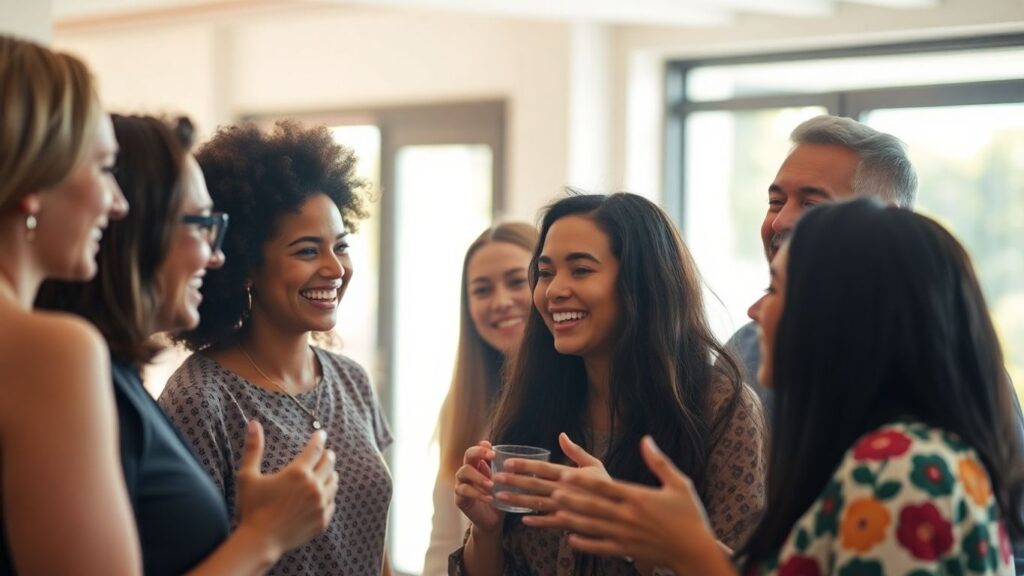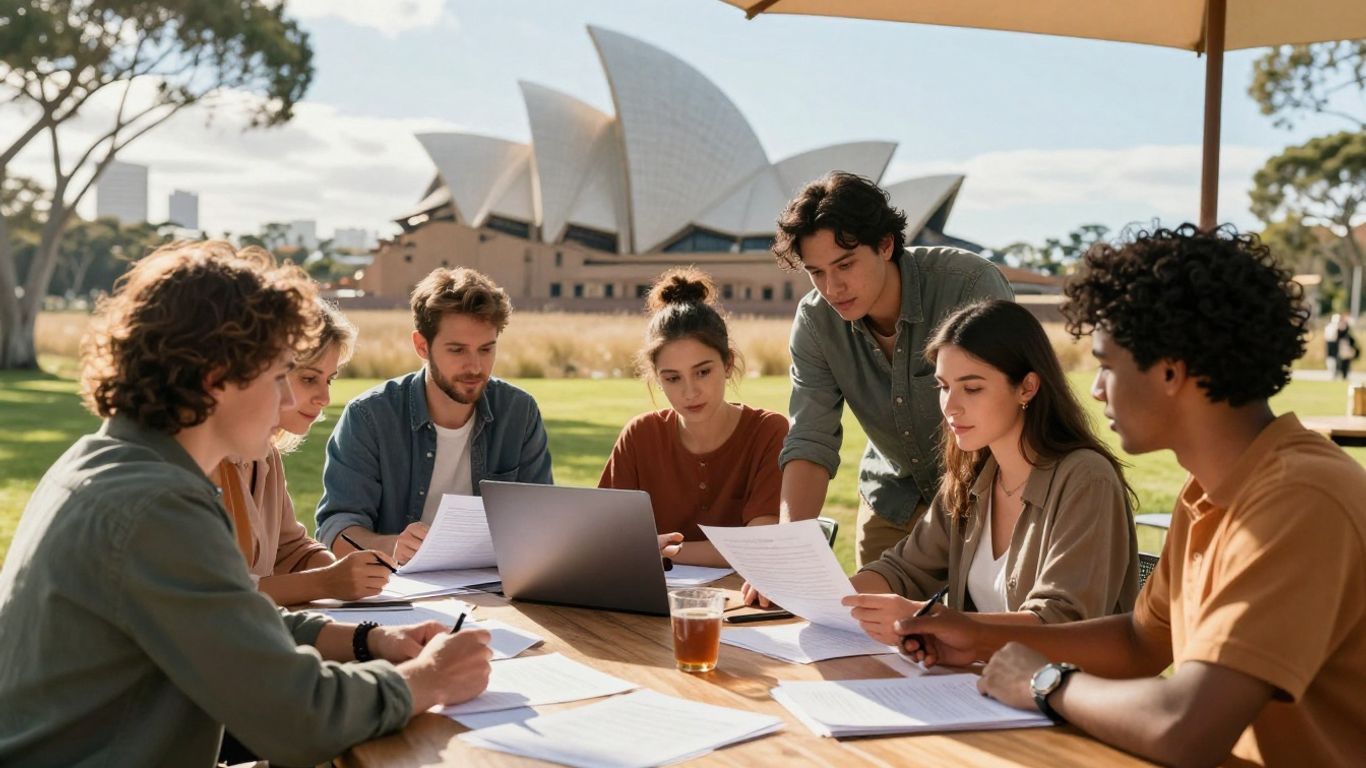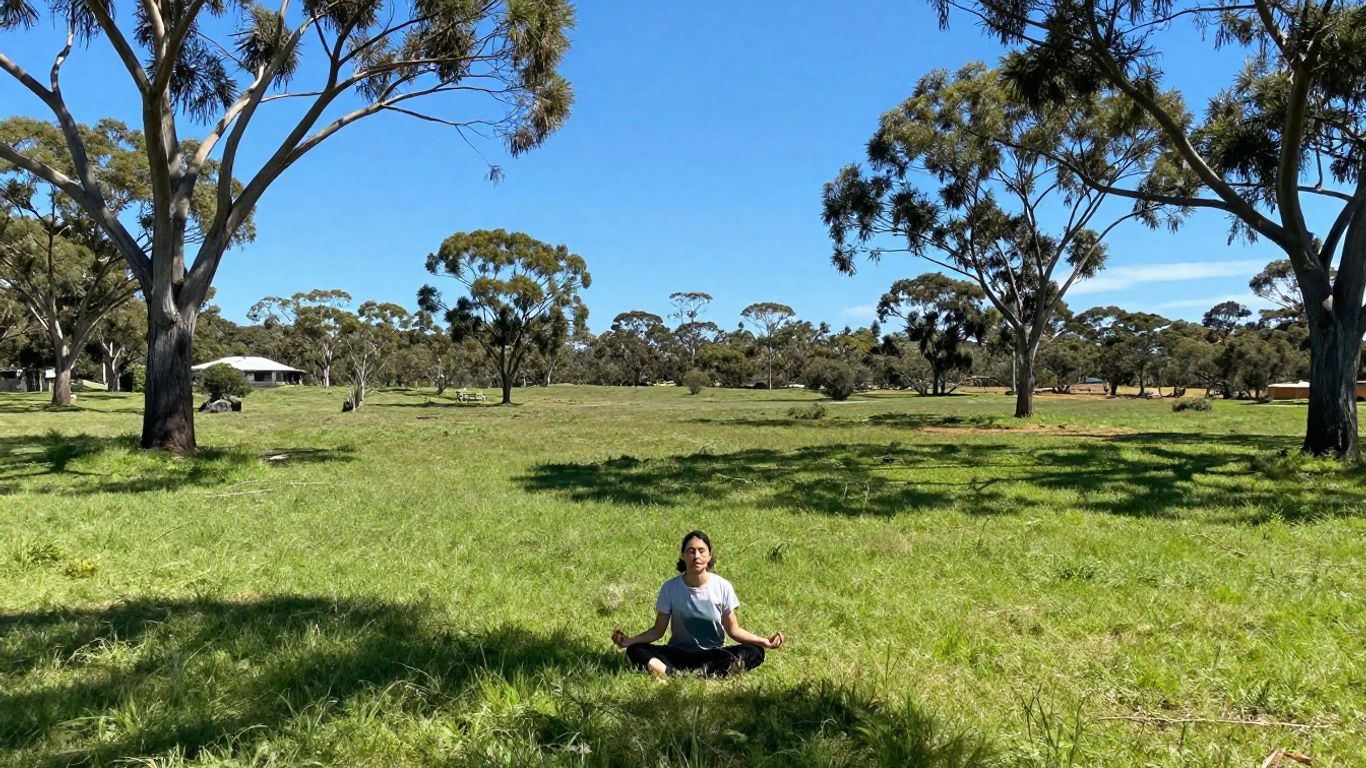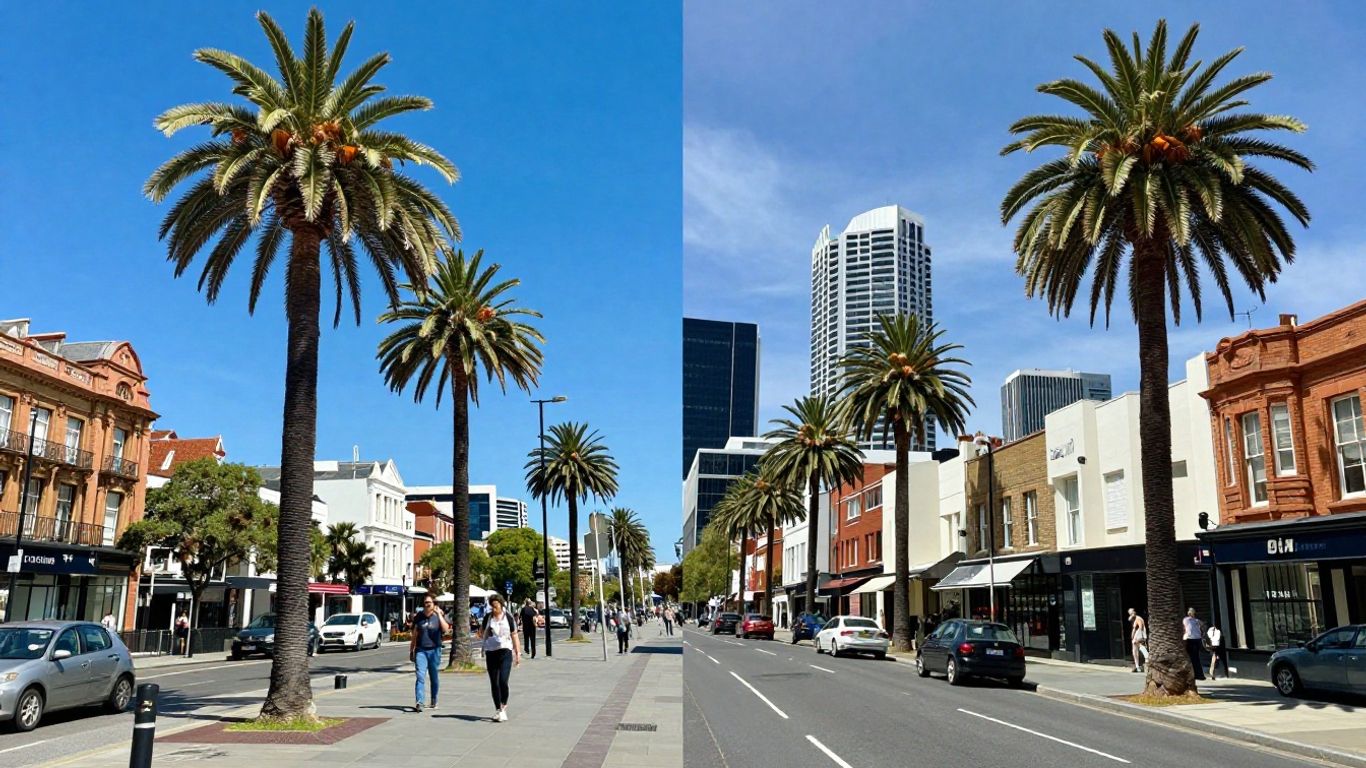Australia has a bunch of organisations working to help Deaf people and those with hearing issues. It’s not just one big group, but lots of different ones, big and small, all doing their bit. Whether you need help with Auslan, communication tech, or just want to connect with others, there’s likely someone out there who can lend a hand. This rundown looks at some of the main players and what they do, aiming to make things a bit clearer for everyone.
Key Takeaways
- Deaf Australia is the main national group for Deaf people who use both English and Auslan.
- Organisations like Deaf Connect offer a wide range of services for Deaf, Deafblind, and hard of hearing Australians.
- Various groups focus on specific areas, such as communication technology (Conexu Foundation) or government hearing services (Hearing Australia).
- Regional and state-based Deaf Societies, like Access Plus WA Deaf and Expression Australia, provide local support and services.
- Resources exist for hearing aid recycling, assistive devices, and family support for children with hearing loss.
Understanding Deaf Society Australia’s Role
Deaf Australia: The National Voice
Deaf Australia is pretty much the main group speaking up for Deaf, Deafblind, and hard-of-hearing folks across the country. They’re led by Deaf people themselves, which is a big deal because it means their work is really grounded in what the community actually needs. They’ve been around since 1986, so they’ve got a lot of history and experience under their belt. Their main goal is to make sure everyone who prefers Auslan gets to be fully involved in everything happening in Australia, just like anyone else.
They do a lot of work behind the scenes, talking to governments and other big organisations. It’s all about making sure laws and services actually work for Deaf people. They also run campaigns on issues that matter to the community, and they share information in ways that are easy to access, like webinars and videos in Auslan.
Advocacy and Community Engagement
This is where Deaf Australia really shines. They’re constantly advocating for the rights and needs of the Deaf community. This isn’t just about making noise; it’s about having real conversations with policymakers and service providers to push for change. They’re involved in big national discussions, like making sure the rights of people with disabilities are respected, and they also look at specific issues that affect Deaf Australians.
They also put on events and create resources to keep the community informed and connected. Think workshops, skill-sharing sessions, and even things like the Dot Shaw Competition, which celebrates Deaf writers. It’s all about building a stronger, more connected community.
Supporting Auslan Users
Auslan is central to Deaf Australia’s work. They strongly believe that Auslan should be recognised and supported as a primary language. This means they push for more Auslan resources, more Auslan interpreters, and more opportunities for people to use Auslan in everyday life. They also work to make sure information about important things, like the Disability Royal Commission, is available in Auslan so everyone can understand what’s going on.
The push for better Auslan access isn’t just about communication; it’s about cultural identity and ensuring that the richness of Auslan is preserved and celebrated for future generations. It’s about making sure that no one is left out because they can’t access information in their preferred language.
Here’s a quick look at some of their focus areas:
- Policy Influence: Working with government on legislation that impacts Deaf Australians.
- Information Dissemination: Providing accessible information through various Auslan-friendly formats.
- Community Building: Creating spaces and events for Deaf people to connect and share.
Key Organisations Supporting the Deaf Community
Deaf Connect: Whole-of-Life Services
When you’re looking for support that covers pretty much everything, Deaf Connect is a big player. They’re not just about one thing; they offer services for Deaf, Deafblind, and hard of hearing Aussies right across their lives. Think of them as a one-stop shop, with offices in places like Queensland, NSW, Adelaide, Melbourne, and Darwin. They’re all about building up the Deaf community and making sure things change for the better, while also respecting the history and culture that’s so important.
They really focus on being there for people from when they’re young right through to older age, providing a consistent point of contact and support.
Deaf Connect provides a wide range of support, including:
- Auslan interpreting services
- Community access programs
- Information and referral
- Advocacy
- Social and recreational activities
It’s a good idea to check out Deaf Connect if you’re after ongoing support.
Deafness Forum of Australia: Representing Hearing Impairment
This mob, the Deafness Forum of Australia, is the main group looking out for the interests of the millions of Australians who have some kind of hearing loss. Their group includes people with hearing issues, ear problems, balance troubles, those who use Auslan, and their families too. They’re basically the national voice for anyone affected by hearing impairment.
Conexu Foundation: Communication Technology
For anyone interested in how technology can help people who are Deaf, hard of hearing, or have trouble speaking, the Conexu Foundation is worth knowing about. They’re a not-for-profit organisation that works on making communication tech better. The goal is to help these Aussies connect more easily with everyone else. They’re really focused on making sure the latest communication tools are available and useful.
Specialist Services and Support Networks

Beyond the broader organisations, there are some really specific services out there designed to help people with hearing loss and their families. These places often focus on particular needs, whether that’s communication access, specific disabilities, or government-funded support.
Able Australia: Multiple Disabilities Support
Able Australia is a bit of a unique one. They work with people who have a range of disabilities, and that includes those who are also deaf or hard of hearing. It’s not just about hearing loss; it’s about supporting the whole person and their family, making sure they can get the help they need across different areas of their lives. They focus on making sure everyone has a fair go and can participate in the community.
National Relay Service: Communication Access
This one is super important for making sure everyone can communicate. The National Relay Service (NRS) is basically a way for people with hearing or speech impairments to connect with anyone else in Australia. You can use it for phone calls, and there are different ways to do it depending on what works best for you. It’s all about breaking down those communication barriers so you can make calls for appointments, chat with friends, or do whatever you need to do over the phone.
Here’s a quick rundown of how it works:
- TTY (Teletypewriter): If you have a TTY machine, you can type messages back and forth.
- Voice Relay: A relay officer speaks your typed words to the other person and types their spoken words back to you.
- Video Relay: For Auslan users, you can communicate through a video link with an Auslan interpreter.
- SMS Relay: You can send and receive text messages through the NRS.
Hearing Australia: Government Hearing Services
Hearing Australia is the main government body when it comes to hearing health. They provide a heap of services, especially for children and eligible adults. Think hearing assessments, fitting hearing aids, and offering support for people with hearing conditions. They’re a big player in making sure people can get their hearing checked and managed, often with government funding making it more accessible.
It’s easy to think of hearing loss as just one thing, but the reality is much more complex. Support needs to be tailored to the individual, considering not just the degree of hearing loss but also other life circumstances and communication preferences. These specialist services are there to fill those specific gaps.
Regional and State-Based Deaf Societies

Access Plus WA Deaf
For Western Australians, Access Plus WA Deaf has been a go-to for support since way back in 1921. They used to be known as the WA Deaf Society, but they’ve kept up with the times. They’re all about making sure Deaf and hard of hearing folks in WA have the services and community connections they need. It’s pretty impressive how long they’ve been around, really.
Expression Australia: Victoria and Tasmania
Expression Australia is a big player, especially in Victoria and Tasmania. They actually merged with the Tasmanian Deaf Society a few years back, which means they’ve got a really solid footprint across both states. They offer a whole range of things, from Auslan classes to training for businesses wanting to be more inclusive. It’s not just about services; it’s about building a stronger Deaf community across these southern states.
Deaf Can:Do South Australia
In South Australia, Deaf Can:Do has been supporting the local Deaf and hard of hearing community for a really long time, since 1891, believe it or not. That’s a serious amount of history and experience. They provide a variety of services aimed at making life easier and more connected for South Australians who are Deaf or hard of hearing. It’s a testament to their dedication that they’ve been going strong for over a century.
Tasmanian Deaf Society
While Expression Australia now works closely with the Tasmanian Deaf Society, it’s worth remembering the Tasdeaf’s own history. They’ve been a key organisation in Tasmania, providing advocacy, Auslan classes, and training. Their work has been vital in promoting Deaf culture and awareness within the state. The merger means their reach is even wider now, combining strengths for better outcomes.
It’s easy to think of the big national organisations, but these state and regional groups are the backbone for many people. They understand the local nuances and provide that direct, community-level support that can make all the difference in day-to-day life. They’re the ones on the ground, connecting people and making sure local needs are met.
Resources for Hearing Health and Assistive Technology
Looking after your hearing is pretty important, and thankfully, there are some great organisations and services out there to help. Whether you’re dealing with hearing loss yourself, or you’re looking for ways to make communication easier, there’s support available.
Recycled Sound: Hearing Aid Recycling
It’s a bit of a shame when perfectly good hearing aids just get thrown out. Recycled Sound is a fantastic project, run by the Rotary Club of Toorak, that collects used hearing aids. They then get them cleaned up, reprogrammed, and fitted to people who really need them but can’t afford new ones or don’t qualify for government help. It’s a really practical way to give these devices a second life and help someone hear better.
Word of Mouth Technology: Assistive Devices
When you need a bit of extra help with communication, Word of Mouth Technology is a go-to supplier in Australia. They stock a range of assistive devices specifically for people who are Deaf or hard of hearing. Think things like amplified phones, special alert systems, and other bits and pieces that can make a big difference in daily life. It’s all about making things more accessible.
ClearaSound: Products for Communication Needs
ClearaSound, formerly known as Printacall, is another organisation that focuses on providing products for people with hearing or speech impairments. They offer various items designed to help bridge communication gaps. It’s good to know there are places that specialise in these kinds of solutions, making everyday interactions a bit smoother for everyone.
Access to the right technology can really change things. It’s not just about hearing better, but about staying connected and involved in everything going on around you. These services are there to make sure that happens.
Here’s a quick look at what some of these services offer:
- Recycled Sound: Collects, refurbishes, and redistributes used hearing aids to those in need.
- Word of Mouth Technology: Supplies a variety of assistive communication devices.
- ClearaSound: Provides products aimed at improving communication for hearing and speech impaired individuals.
It’s worth exploring these options if you’re looking for ways to manage hearing health or improve communication access. They’re all part of the bigger picture of supporting the Deaf and hard of hearing community across Australia.
Empowering Families and Young Australians
Raising a child who is deaf or hard of hearing comes with its own set of challenges and triumphs. Thankfully, there are organisations dedicated to making this journey a bit smoother for families across Australia. These groups focus on providing practical support, sharing information, and building connections so no family feels alone.
Aussie Deaf Kids: Parental Support
Aussie Deaf Kids is a charity that really gets what parents are going through. They offer a heap of online support, practical advice, and they also do a bit of advocating to make sure families have what they need. It’s all about connecting parents with others who understand and providing resources to help them raise their child with hearing loss.
Deaf Children Australia: Educational Resources
Deaf Children Australia is another big player, focusing on the educational side of things. They provide information, advocacy, and support services specifically for deaf and hard of hearing children and their families. They aim to make sure kids have access to the right resources to learn and thrive, from early childhood right through to adulthood. They’re all about making sure education is accessible and effective for every child.
Victorian Infant Hearing Screening Program
Catching hearing issues early is super important, and that’s where programs like the Victorian Infant Hearing Screening Program (VIHSP) come in. This program checks the hearing of all newborn babies in Victoria. The idea is to spot any permanent childhood hearing loss as soon as possible so that interventions and support can start right away. Early detection really makes a difference in a child’s development and communication skills.
It’s easy to get caught up in the day-to-day, but remembering that there are organisations out there specifically designed to help families with deaf or hard of hearing children can make a world of difference. They’re there to share knowledge, offer a listening ear, and provide practical tools to help your child reach their full potential.
Promoting Inclusion and Accessibility
Making sure everyone can join in and access what they need is a big deal, especially within the Deaf community. It’s not just about having services, but about making sure those services are easy to find and use for everyone, no matter how they communicate.
Access Australia: Digital Accessibility
Access Australia is a really important group. They’re the only charity in Australia focused on making the internet and digital stuff accessible for people with disabilities. They work with governments, businesses, and educators to share information and know-how on making websites, apps, and even TV and movies easier for everyone to use. Think about how much of our lives are online these days – Access Australia is working to make sure no one gets left behind.
Australian Communications and Media Authority (ACMA)
The ACMA is the government body that keeps an eye on all things communications and media in Australia. They set the rules for things like phones, the internet, TV, and radio. Their job is to make sure the communications landscape works well for everyone and that new technologies, like 5G, can roll out smoothly. They also handle complaints and make sure companies are playing by the rules. It’s a pretty broad role, covering a lot of ground that impacts how we all connect.
Deaf Sports Australia: Participation in Sport
Getting involved in sports and recreation is a fantastic way to stay healthy and connect with others. Deaf Sports Australia, which has been around since 1954, is the main organisation supporting Deaf and hard-of-hearing Australians in sports. They help people get involved at all levels, from local clubs to big international events like the Deaflympics. They team up with governments, businesses, and other sports groups to make sure opportunities are there for everyone who wants to play.
Here’s a look at some of the ways Deaf Sports Australia helps:
- National Events: Organising and supporting participation in events like the Australian Deaf Games and the Asia Pacific Deaf Games.
- Partnerships: Working with various organisations to create more sporting opportunities.
- Awareness: Promoting the benefits of sport and physical activity for the Deaf community.
Making sure digital spaces and community activities are open to everyone is key to building a society where all Australians can participate fully. It requires ongoing effort from organisations and individuals alike to break down barriers and create welcoming environments.
Wrapping Up
So, there you have it. Connecting with the Deaf community in Australia isn’t just about finding services; it’s about building real connections. We’ve looked at a bunch of organisations, from the big national players like Deaf Australia and Deaf Connect, right down to local groups and specialised support. Whether you’re looking for Auslan resources, advocacy, or just a friendly face, there’s a lot out there. Remember, these groups are there to help, so don’t hesitate to reach out. It’s all about making sure everyone feels included and supported, no matter what.
Frequently Asked Questions
What is Deaf Australia all about?
Deaf Australia is like the main voice for Deaf people in our country. They work hard to make sure everyone who is Deaf, hard of hearing, or uses Auslan (Australian Sign Language) can join in everything and have their say. They do lots of important work like talking to the government and helping people connect.
Where can I find services that help Deaf people across Australia?
There are many great organisations! Deaf Connect offers support for your whole life, from when you’re young to when you’re older. Organisations like Access Plus WA Deaf, Expression Australia, Deaf Can:Do South Australia, and the Tasmanian Deaf Society also provide local help in different parts of the country. It’s good to check out what’s available near you.
I need help with hearing aids or technology to make things easier to hear. What should I do?
No worries! Groups like Recycled Sound can help with hearing aids if you can’t afford new ones. Word of Mouth Technology and ClearaSound offer cool gadgets and tools that can really help with hearing and talking. Plus, the National Relay Service lets you make phone calls even if you find it tricky.
Are there places that help families with kids who are Deaf or hard of hearing?
Absolutely! Aussie Deaf Kids is a fantastic place for parents to get support and information when raising a child with hearing loss. Deaf Children Australia also has heaps of resources and helps families with education and other needs. If you’re in Victoria, the Victorian Infant Hearing Screening Program checks babies’ hearing right after they’re born.
How can I learn more about Auslan?
Auslan is the Australian Sign Language, and it’s a beautiful way to communicate! Deaf Australia has resources and even an online shop with items that can help you learn. Many local Deaf Societies also offer Auslan classes. It’s a great skill to learn to connect with more people!
Who helps make sure things are fair and accessible for Deaf people in Australia?
Lots of groups work on this! Deafness Forum of Australia speaks up for people with hearing issues. The Australian Communications and Media Authority (ACMA) makes rules for things like TV and phones to be more accessible. Deaf Sports Australia also works to get everyone involved in sports, making sure it’s fun and fair for everyone.





